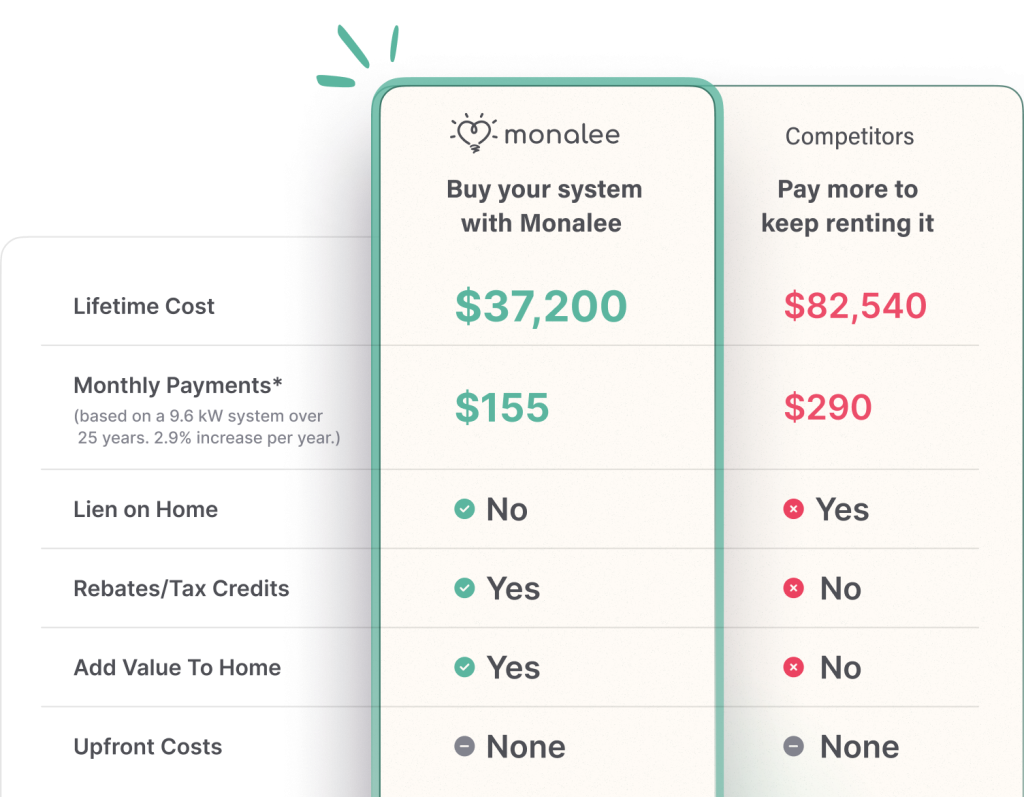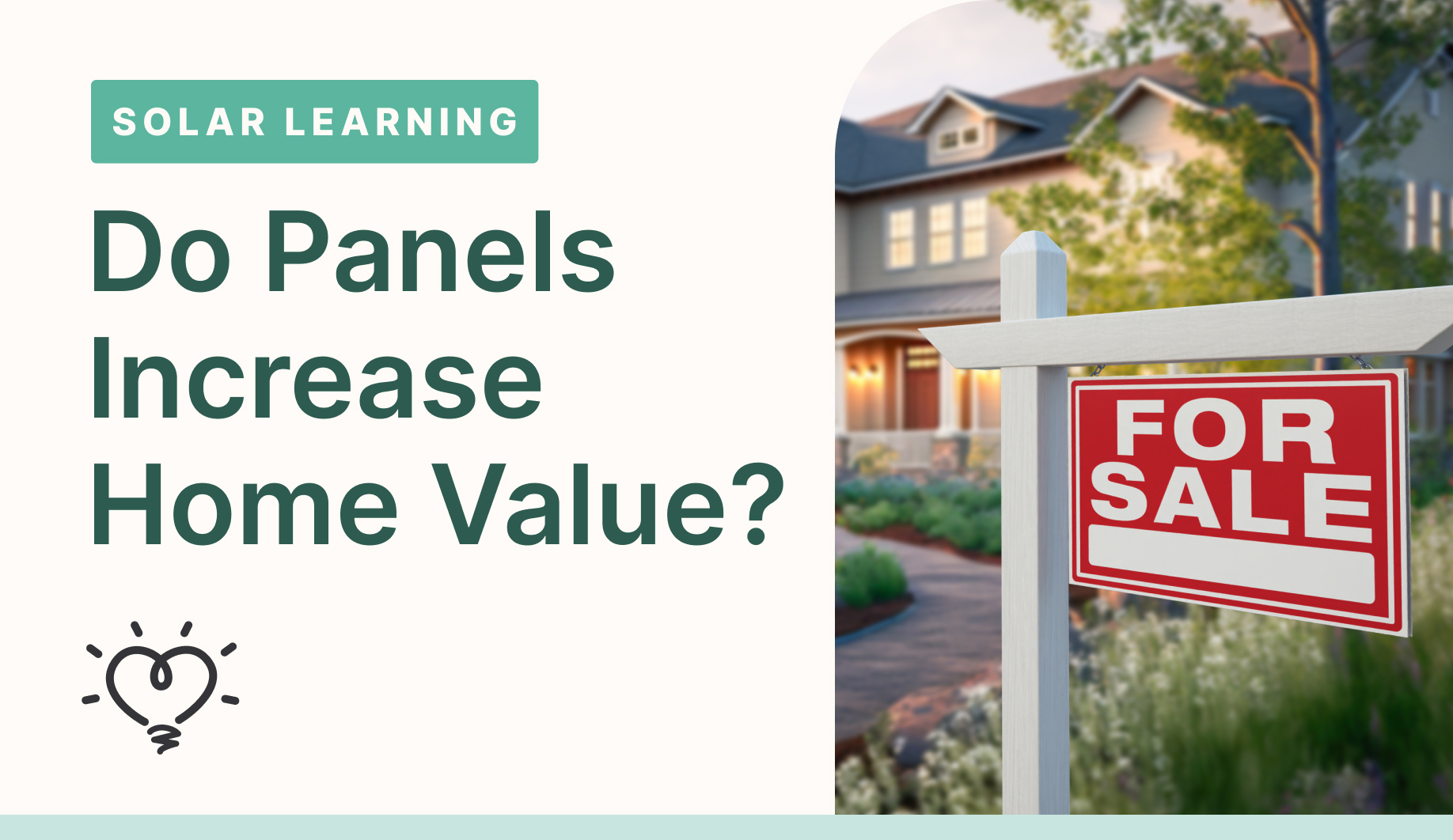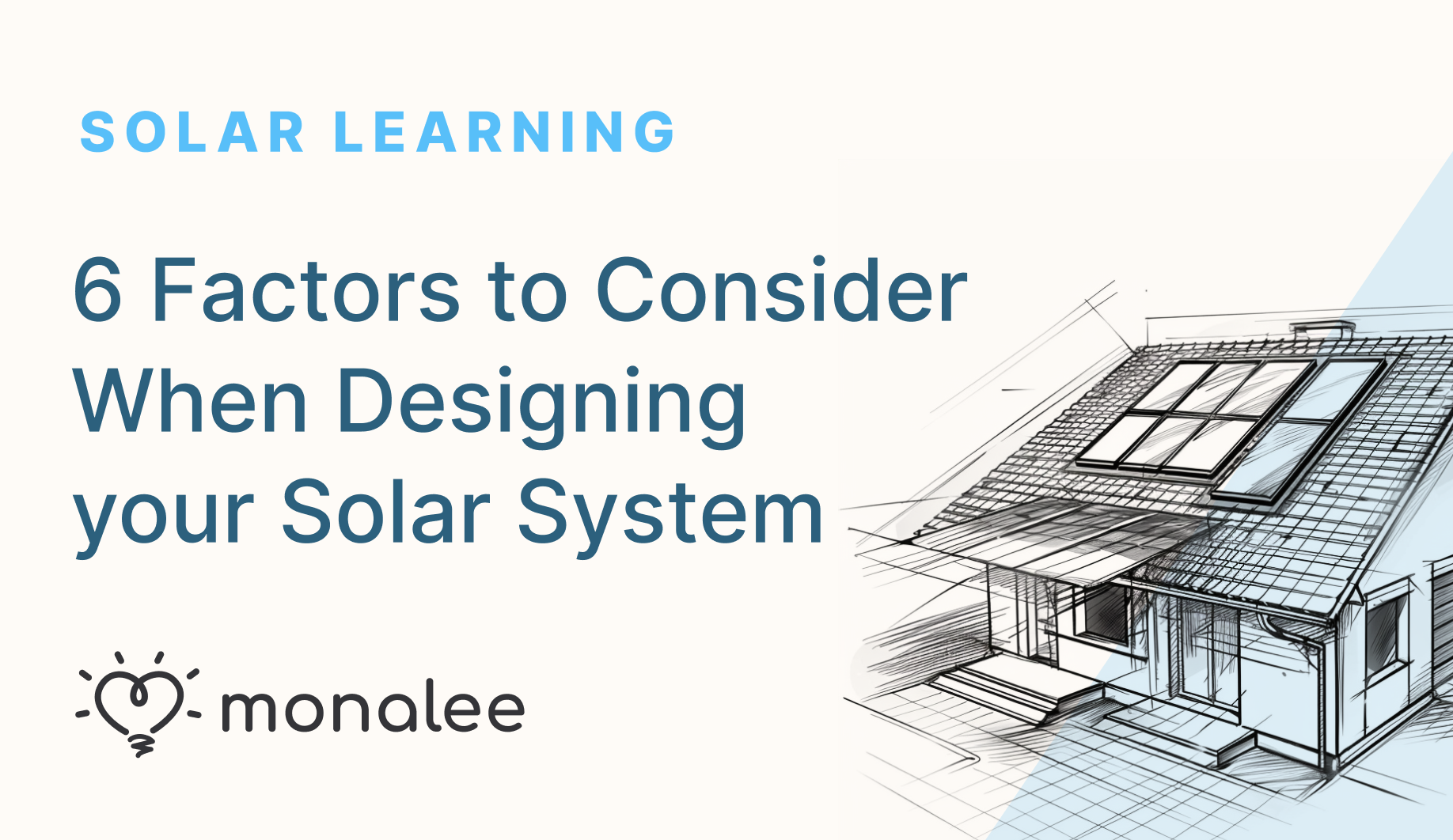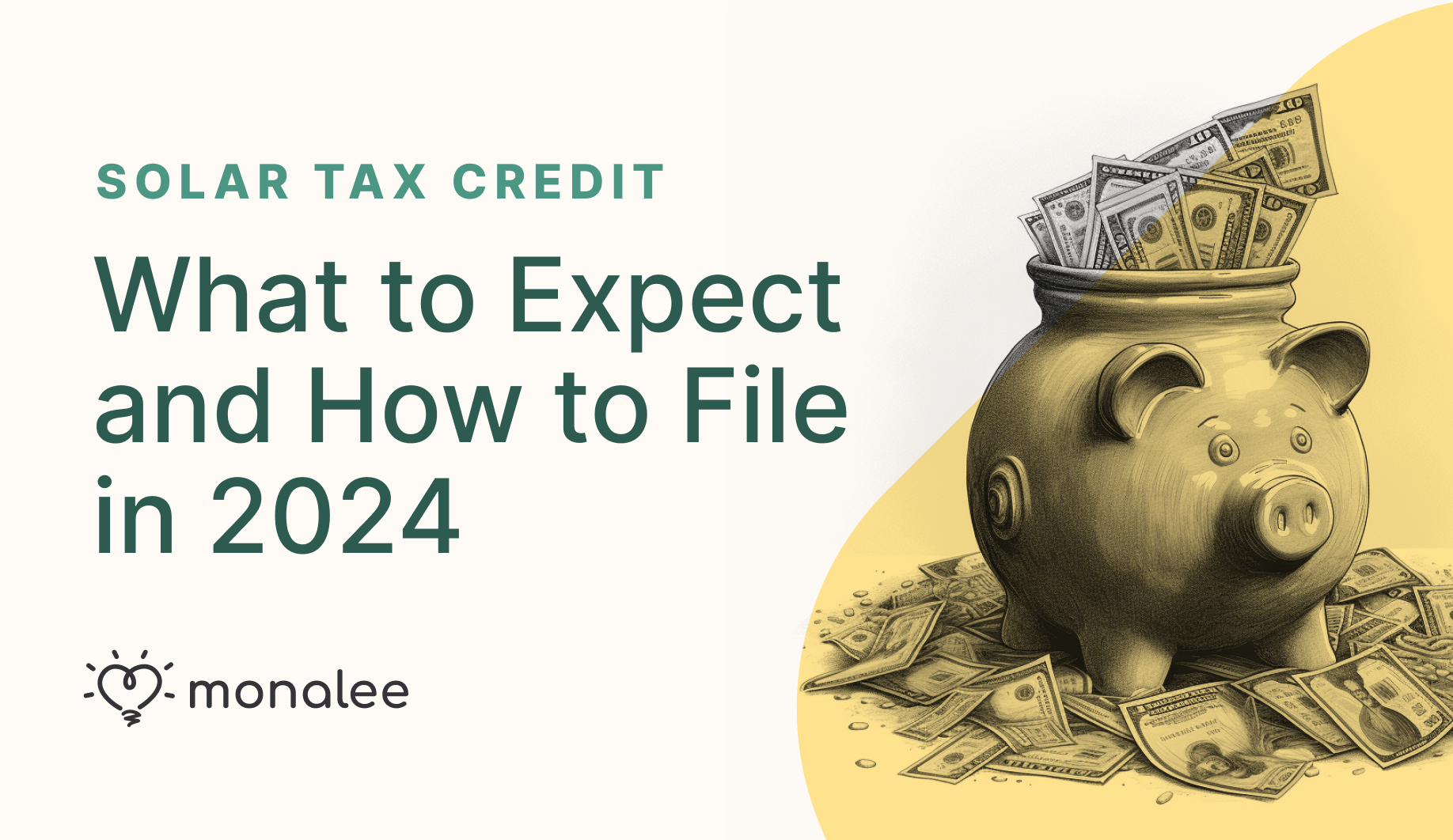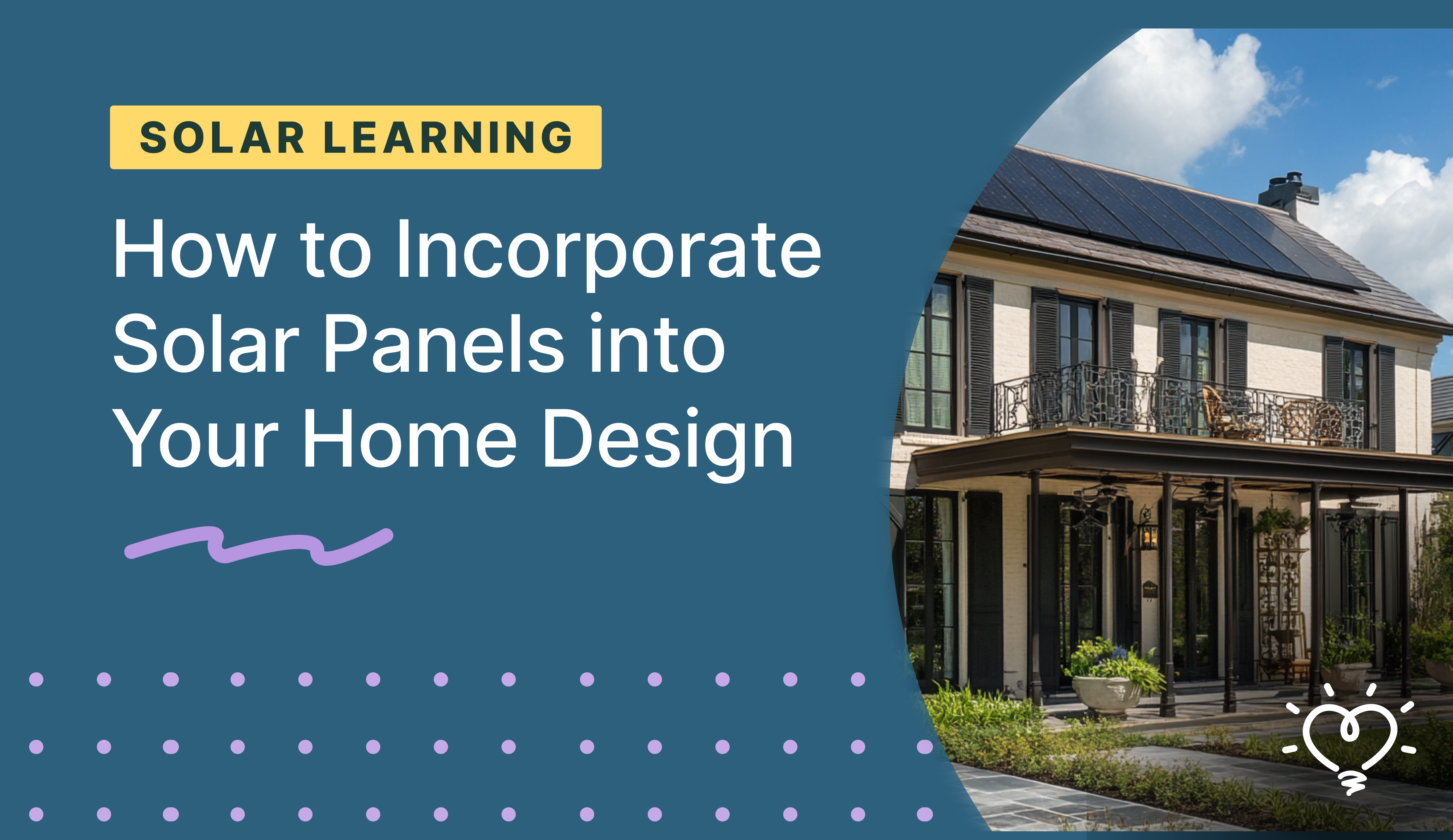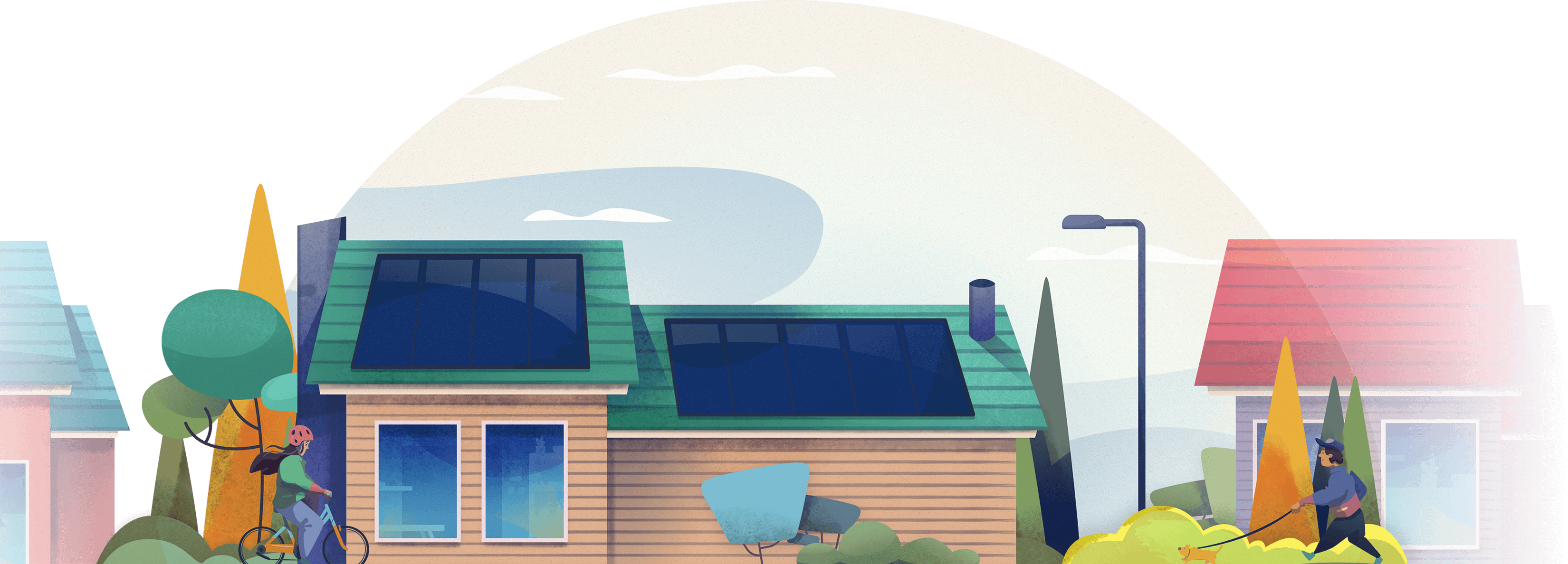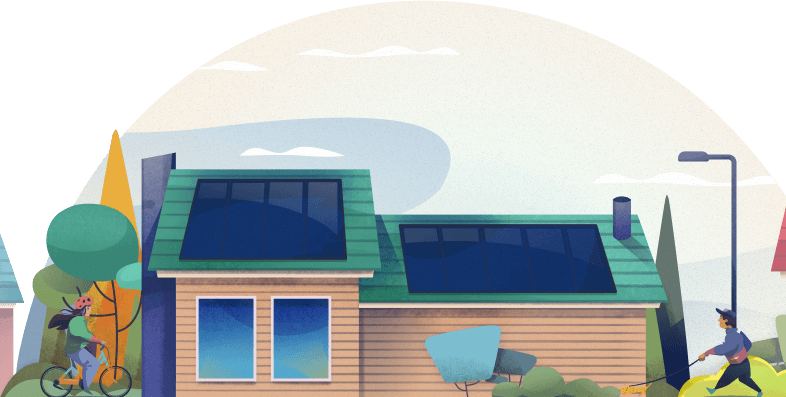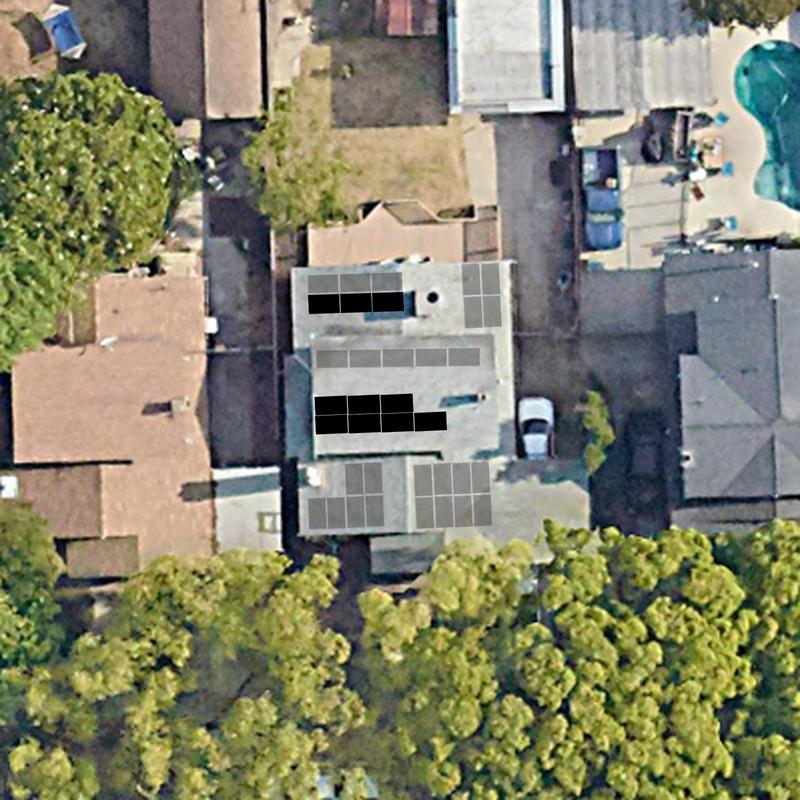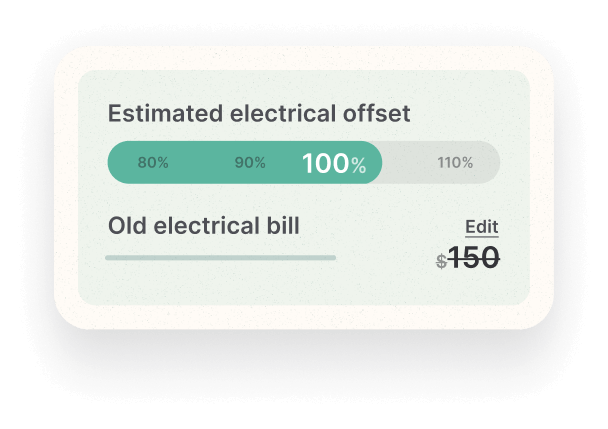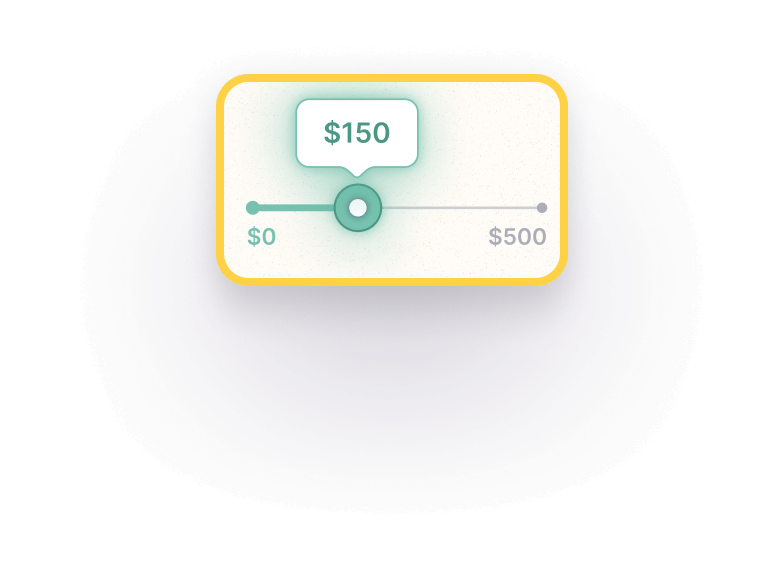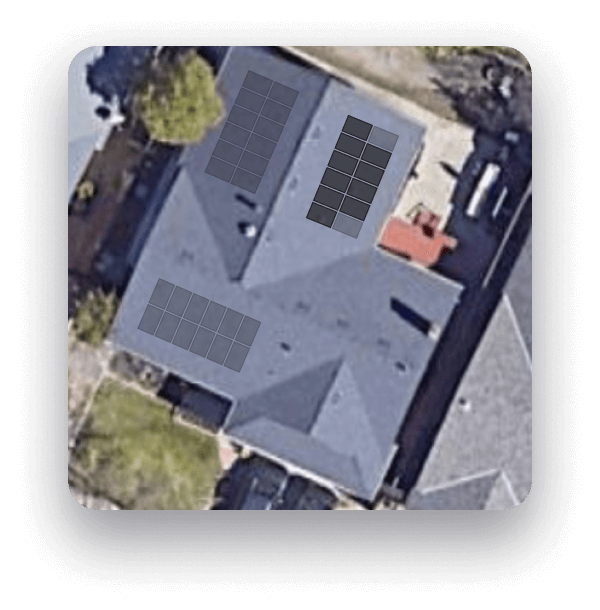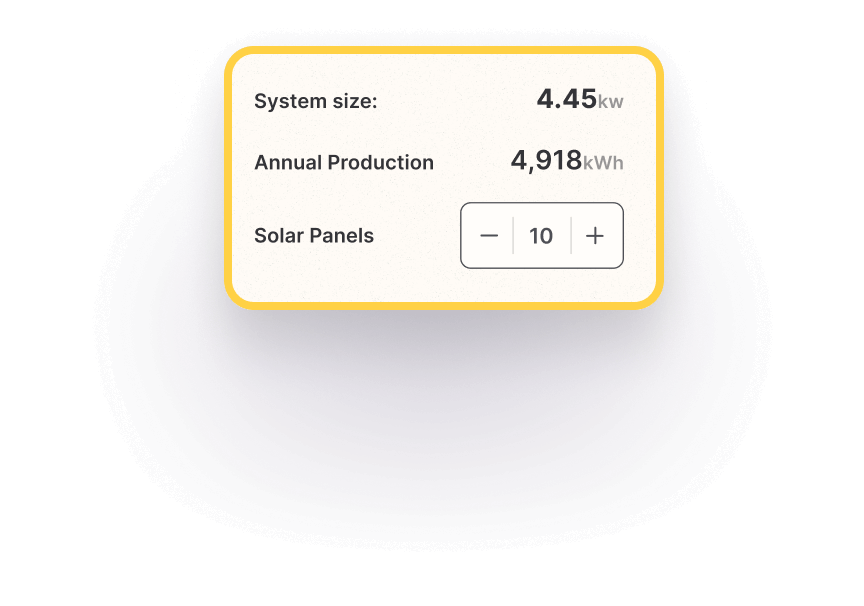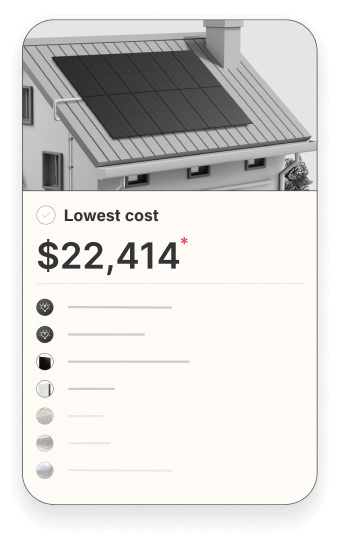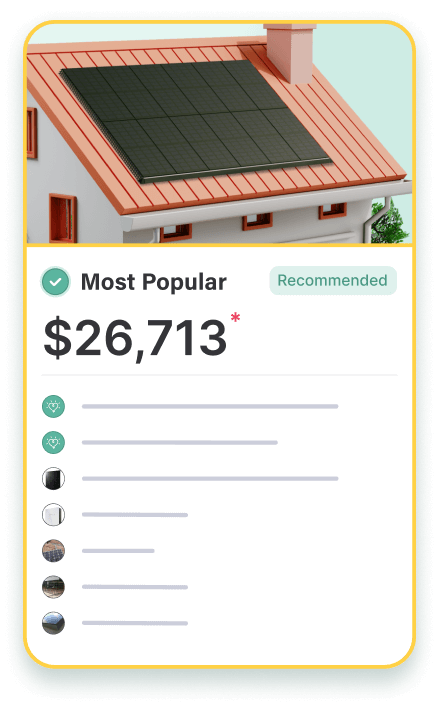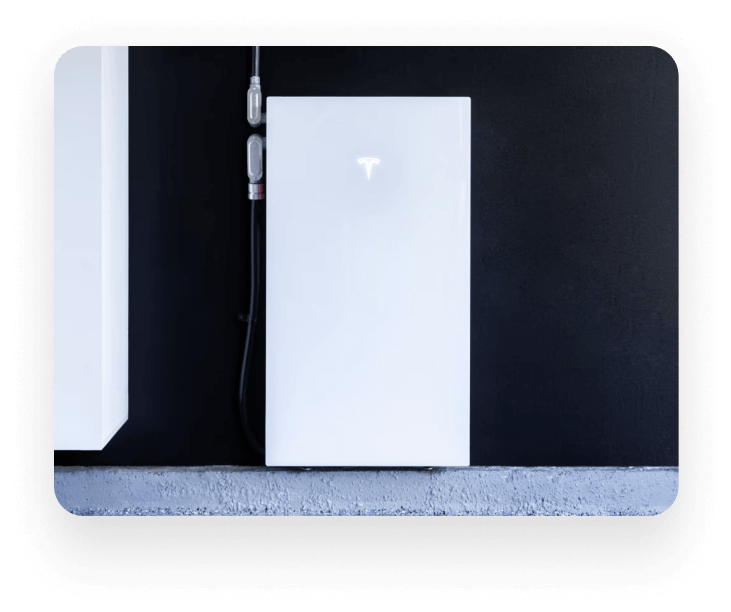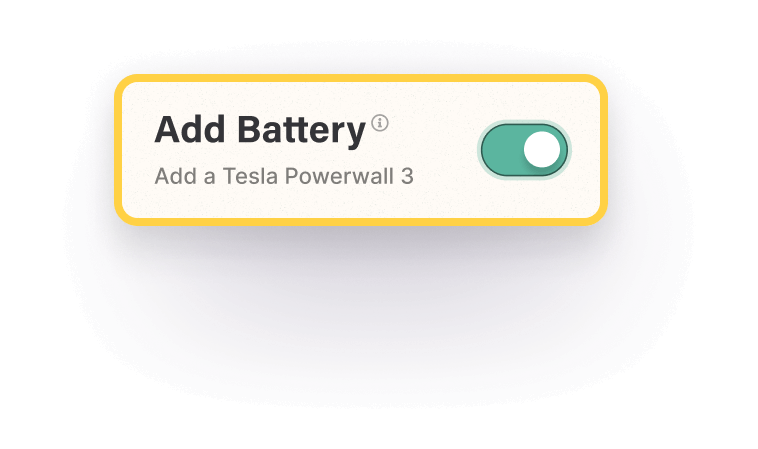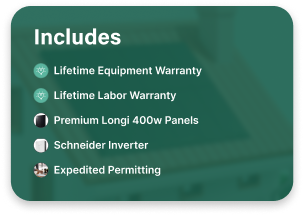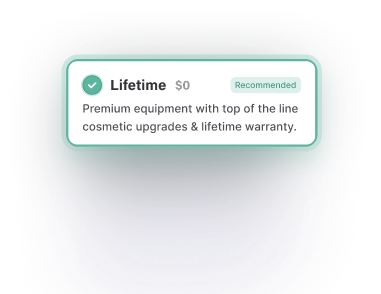On average, running your home on solar energy increases its value by 4.1-percent.
Going solar is an impactful way to live more sustainably while investing in your financial future. It also increases the value of your home regardless of whether you plan to sell it now or later on. In fact, studies show that solar panels increase home value by an average of 4.1-percent.
Not only do solar panels give the aesthetic of a sleeker, more modern home, but whoever moves in next will be energy independent.
Scroll below for more insight on how solar can benefit your home, and other ways going solar is the ultimate smart investment for any existing or soon-to-be homeowner.
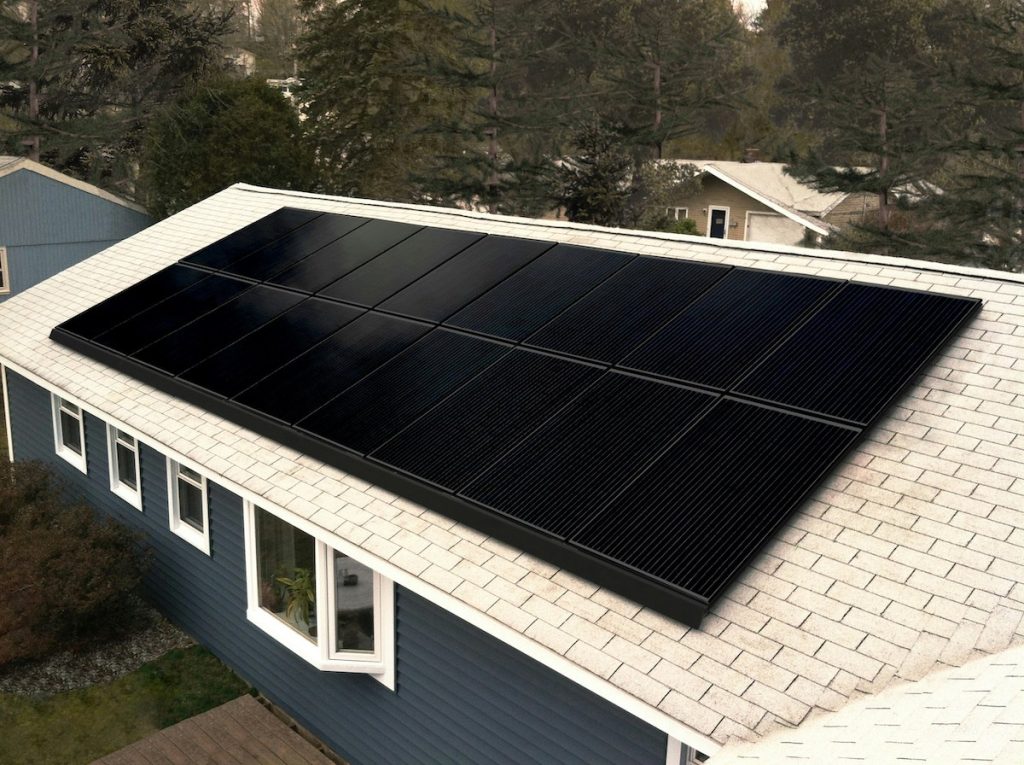
The demand for solar is high
The demand for solar panels is heating up—no pun intended—and that’s definitely a good thing from an investment standpoint.
According to the International Energy Agency, global solar PV investments in capacity additions increased by over 20% in 2022 and surpassed USD 320 billion. The more in-demand something is, the more competitive the pricing.
At Monalee, we’re able to slash up to 50-percent off the total price by removing salespeople and system designers from the process. We eliminate many soft costs and pass the savings directly to the homeowner.
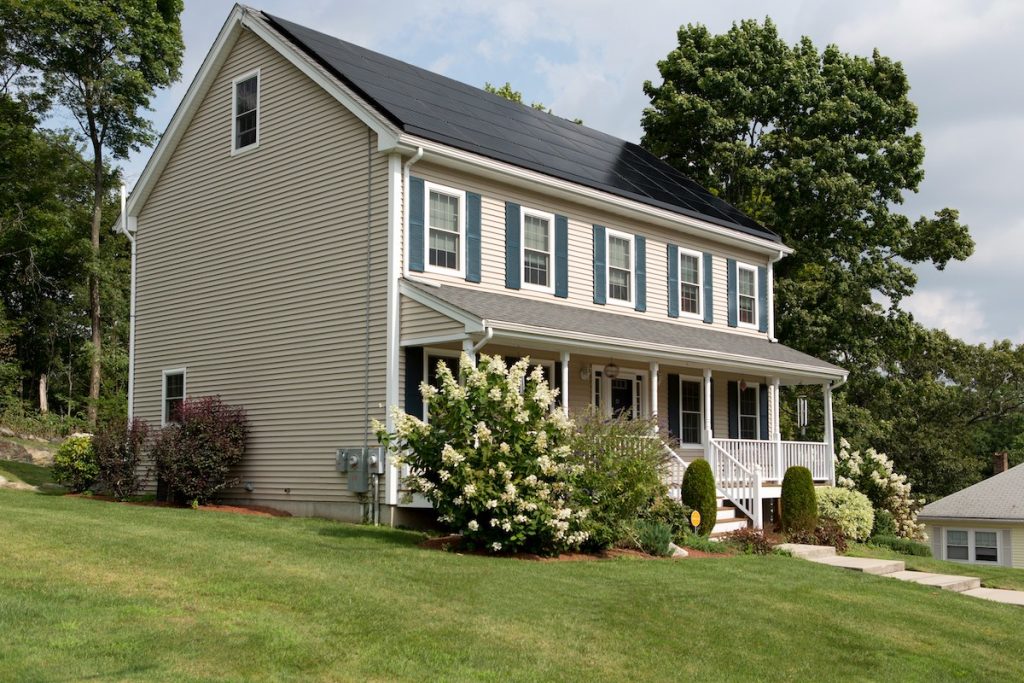
Factors that add to a solar-powered home’s value
Adding a solar system to your home will definitely increase its value. Here are a few other factors that contribute to how much your home will be worth after installation.
City and State
When it comes to increasing the value of your solar-run home, location matters. In Arizona, for example, the Solar Equipment Sales Tax Exemption offers a 5.6% home solar power system state sales tax exemption for residents who invest in solar for their homes. In Florida, homeowners can sell excess energy that is produced from their solar system to the local grid and earn credits in return through net metering.

Electricity Rates
Looking at a home’s utility rates are helpful in determining how much money a homeowner is saving from going solar. From our experience, we’ve seen customers go from paying $300 per month on utilities to just $50 a month. Some bills drop as low as $12.
How much you save on solar largely depends on what you were paying for electricity ahead of making the switch. At Monalee, our goal is to design solar systems that give the homeowner 100% offset–meaning that their utility bill is at or close to zero. Keep in mind, there will still be a small fee from your utility company regardless of offset.
On a geographic level, some States have higher electricity rates. States like Hawaii, Rhode Island, California, and Massachusetts are four culprits while Utah, Wyoming, and Oklahoma have lower average utility rates.
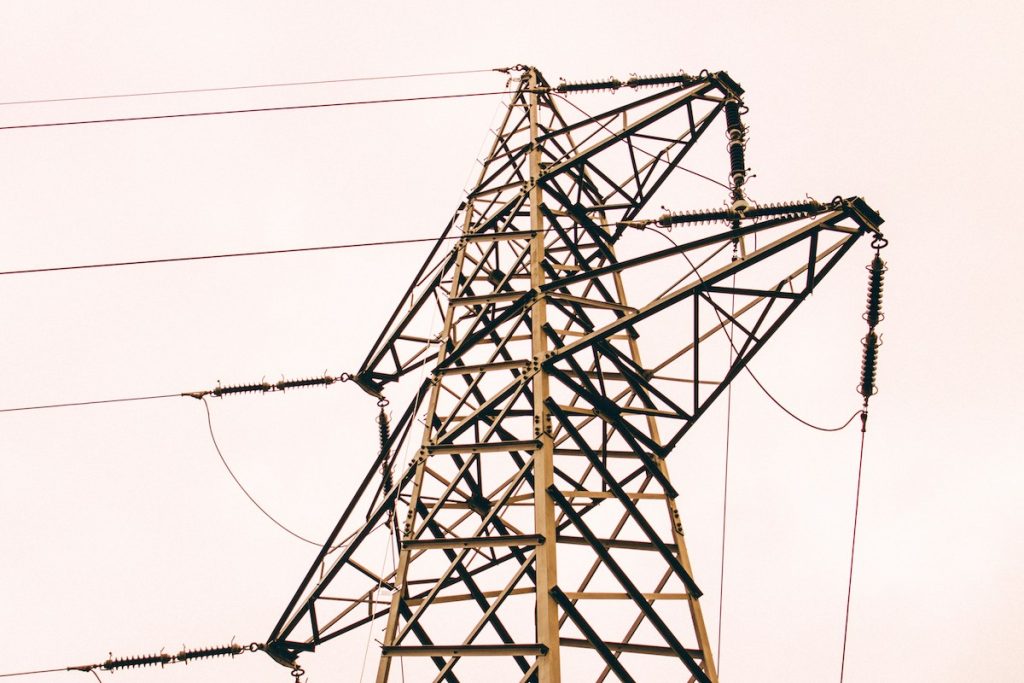
The condition of the solar system
The old saying, ‘you get what you pay for’ applies to solar systems. Solar is already a significant expense, so it’s understandable when a homeowner opts for lower tier equipment in order to make it happen. The trouble is that lower grade equipment, as well as poor workmanship during installation, problems are more likely to arise.
Quality affects a solar panel’s ‘degradation rate,’ which refers to how many years solar panels maintain efficiency. Using this national average, it means that you could still expect your solar output to be about 89% of its original output after 25 years of use.
Currently, solar panels fall into three categories: Tier One, Tier Two, and Tier Three. The best solar panels on the market are going to be Tier One, which means that they will have a slower degradation rate as well. Naturally, Tier One solar panels are more expensive, however their durability and longevity mean that they ultimately pay for themselves.
In short, it’s worth investing a little more so that you ensure your system is top-notch and will last for years to come. When selling your home, potential buyers may bid above asking because they know that they’d be moving in to a home already running on solar energy.
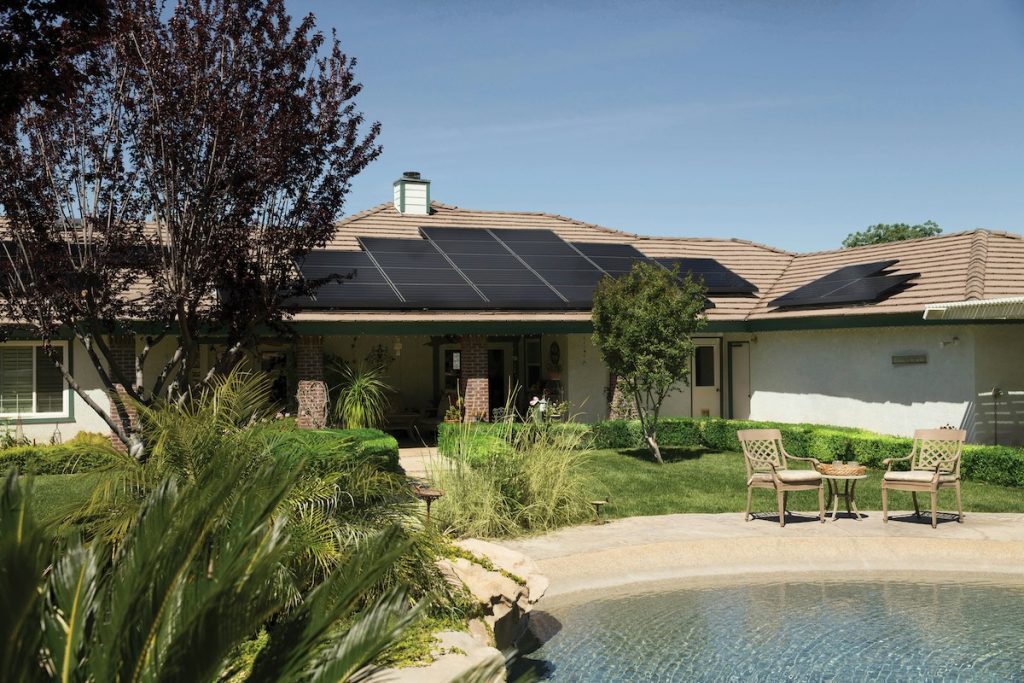
Owning vs. leasing the solar system
This is a big one. Historically, it’s a tough sell taking on a home with an existing solar lease. It’s much better to sell the solar system with the home. Leasing a solar system or having a Power Purchase Agreement (PPA) rarely works in the seller’s favor, either.
First, a little about solar leases. Much like leasing a car, a solar lease is a financial agreement in which the company that installs your home’s solar system retains ownership of the system and you pay a fixed monthly fee to use that energy system. Homeowners who sign up for a lease will pay a monthly fee until they’ve paid off the system in full.
What ends up happening is that when the homeowner decides to sell their property, they’re usually required to pay off the remaining balance which can be a big financial burden. Alternatively, they can find a buyer who doesn’t mind taking that lease over. Most buyers prefer to buy a home with an existing solar system that is already fully paid off.
